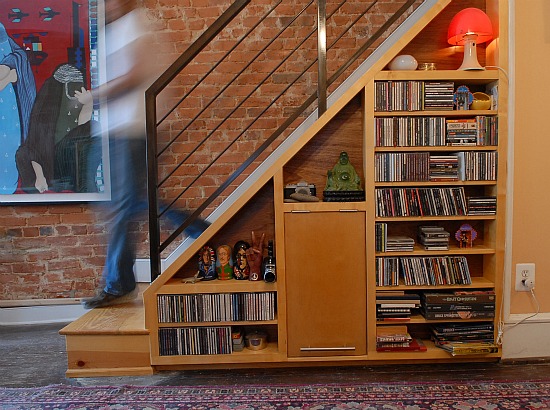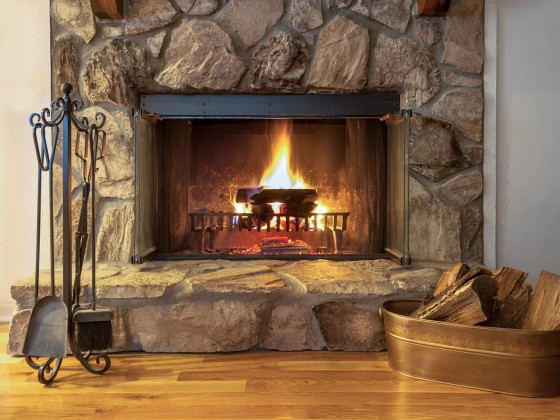What's Hot: Cash Remained King In DC Housing Market In 2025 | 220-Unit Affordable Development Planned Near Shaw Metro
 So, You're Self-Employed and Want to Buy a Home
So, You're Self-Employed and Want to Buy a Home
✉️ Want to forward this article? Click here.

Brian Liu’s home on 14th Street
To many out there, working for yourself without having to answer to an outside boss is the dream job. But be warned: jumping ship from a nine-to-five to self-employment could make buying a home a distinctly tougher endeavor.
“The basic rule of mortgage underwriting is that lenders want income that’s stable and continuing,” William Slosberg, a former mortgage broker who now works for the Falls Church-based Acacia Federal Savings Bank, told UrbanTurf. “And for most [self-employed people], their income is not stable and continuing; it varies from year to year.”
In the old days of lending, this wasn’t as big an issue as it is today. No-documentation loans worked well for the self-employed: interest rates tended to be higher, but the loans didn’t require borrowers to show proof of income as long as they could produce a sizeable down payment. But that was before the mortgage crisis, which many experts believe was exacerbated by the overuse of those so-called “no-doc” loans.
These days, mortgage requirements have tightened considerably. Self-employed borrowers are now capable of getting the same interest rates as their salaried peers, but they have to go a little farther to show lenders that they’re capable of borrowing a sizable sum of money.
The first element to consider is income. As with any borrower, lenders want to ensure that their self-employed client has a stable and continuing source of income that will allow him/her to meet their mortgage payments. While a salaried worker can simply turn in a couple of W-2 forms and a few months of pay stubs to indicate their annual income, that doesn’t work for self-employed folks.
“When you’re self-employed, there’s no way to verify income other than getting a transcript with a tax return,” said Slosberg. The transcript he’s talking about is IRS Form 4506, which allows a lender to request a copy of your tax returns from the Internal Revenue Service.
And the requirements are more restrictive. For the self-employed, lenders will average the incomes listed on the returns for the past two years, which means the home buyer needs to have been in business for at least that long. It also means that if business was lousy last year but is currently going well, the income that lenders will examine won’t be exclusively representative of the borrower’s recent success.
“Maybe you have someone who has done well, making two to three hundred grand a year,” Craig Strent, a mortgage banker and founder of Apex Home Loans in Rockville, said. “Then they go into their own business and are doing well, but they don’t have two years of history.” So they won’t qualify for a mortgage, despite being flush with funds.
There’s another catch. To lower their taxes, people who work for themselves tend to deduct all the expenses they can, which means they may have a high gross income, but the amount they wind up filing with the IRS is distinctly lower. That’s good for tax purposes but bad for borrowing; lenders look at the taxable self-employment net income, not the gross, when determining whether a client makes enough money to qualify for a loan.
And as foolish as it sounds, prospective borrowers need to ensure that they not only filled out their tax returns, but also filed them with the IRS. “Say it’s June, and you give me a tax return for this year,” explained Strent. “You sign the 4506 and I go to the IRS, but they don’t have a record of it. That’s a common occurrence on self-employed loans. They have to have received it and stamped it, and it has to match up with what you gave me.”
Brian Liu is a longtime DC resident who runs a graphic design/art direction/branding firm. He owns his 14th Street home, but his parents had to help him buy it more than a decade ago; even though lending requirements were much looser back then, he couldn’t get a loan.
These days, he’s trying to buy another building, and once again has had very little success finding a reasonable loan. His business is going well and his home is worth several times what he originally paid for it, but Liu’s income on paper still isn’t high enough to qualify for a mortgage. “To get a loan with a decent rate, I need either a partner or someone else with good credit or a decent income,” he said.
Ironically, Liu’s business partner, Nick Pimentel, encountered very few problems when trying to buy his Petworth home three years ago. He and his wife were both self-employed (she runs her own pastry business) and the couple had to borrow money from their families for the down payment, but their combined incomes were enough to get them over the threshold.
Pimentel said that he gave the lender the IRS documents, and also provided a statement from his accountant showing that he’d been self-employed for five years. That’s the second category of documents self-employed buyers have to come up with; after providing proof of income, they have to show proof of employment.
“There’s various ways to verify that someone’s self-employed,” said Slosberg. “The easiest way is to have a CPA prepare your tax returns and have them verify that they’ve been doing them since such-and-such date and that you’re self-employed.” Other options include showing a business license, providing a note from a client outlining the work the freelancer performed, or even highlighting a website or business phone line, though those tend to be less useful.

Rachel Kaufman’s Brookland condo
In the sometimes-tricky process of navigating the lending environment, some borrowers have pointed out that using a mortgage broker, rather than a traditional lender, can be beneficial. After all, by definition brokers have multiple loan options to choose from and can pick one that fits the borrower’s unique needs. Other self-employed homeowners say that the only thing that really matters is that the lender has enough expertise to guide the borrower through the process and highlight red flags that may arise.
But the best way of getting a loan for those who are self-employed might be by purchasing a home together with someone who’s got a steady, salaried job.
Freelance science writer Rachel Kaufman bought a condo in Brookland last year with her boyfriend who has a “regular job.” She had to provide tax returns from the last two years as well as a list of invoices, but wasn’t required to give proof of employment.
“It was really easy,” she said. “I was expecting it to be a lot harder, but maybe because my boyfriend had a steady job, it gave it more legitimacy.”
See other articles related to: dclofts, home buying, self-employed buyers
This article originally published at https://dc.urbanturf.com/articles/blog/so_youre_self_employed_and_want_to_buy_a_home/3418.
Most Popular... This Week • Last 30 Days • Ever

Today, UrbanTurf is taking a look at the tax benefits associated with buying a home t... read »

Lincoln-Westmoreland Housing is moving forward with plans to replace an aging Shaw af... read »

The small handful of projects in the pipeline are either moving full steam ahead, get... read »

A potential innovation district in Arlington; an LA coffee chain to DC; and the end o... read »

A soccer stadium in Baltimore; the 101 on smart home cameras; and the epic fail of th... read »
DC Real Estate Guides
Short guides to navigating the DC-area real estate market
We've collected all our helpful guides for buying, selling and renting in and around Washington, DC in one place. Start browsing below!
First-Timer Primers
Intro guides for first-time home buyers
Unique Spaces
Awesome and unusual real estate from across the DC Metro














